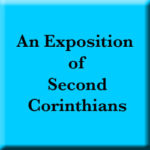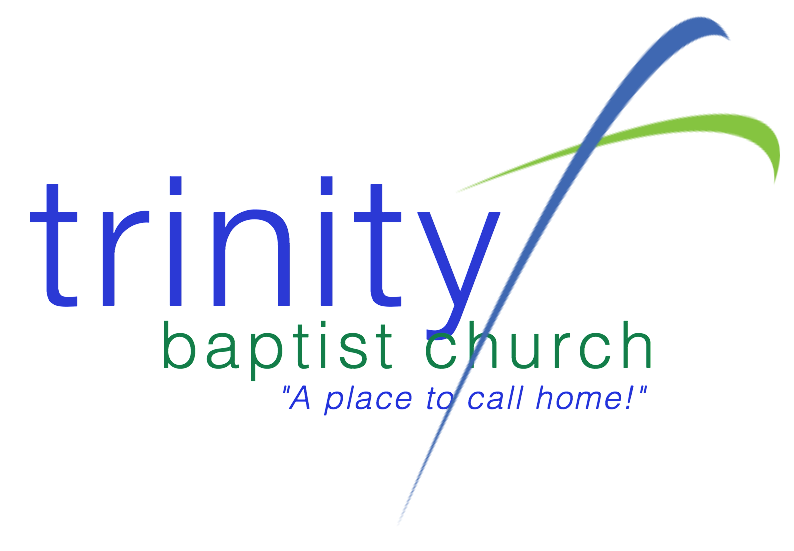
This exposition of 2 Corinthians 13:1-14 by Pastor Rod Harris was delivered at Trinity Baptist Church on Sunday evening, November 4, 2018.
Intro:
Scripture is revealing. Oh, I don’t just mean it reveals great truths about God, salvation, the Christian life and all those important doctrinal matters. And I’m not talking about speculation about end times and interpreting current events. I mean reading the Scripture reveals a lot about us.
[sections collapse="always"][section title="Read More"]
When I’m reading Scripture I’m often surprised by what I learn about myself. Here again, I need to explain. It’s not just that I learn that, as a fallen son of Adam, I’m a sinner. That the thoughts and intents of my heart are only evil all the time or that I’m carried away into sin by my own evil desires. Yes, I learn that but I mean I learn a lot about myself by the way I react to certain things in the Scripture. Like how it irks me when I mad or hurt because of something said or done to me and Scripture says, “I’m to love my enemies and pray for those who persecute me.” About what rise up in me when I’m told to “turn the other cheek.” And frankly, I’m bothered by the fact I find some delight when reading about the destruction of Korah and the others who joined the rebellion against Moses. Do you remember the story? It’s found in Numbers 16. Korah, Dathan and Abiram along with 250 chiefs, well-known men rose up against Moses and Aaron. They said, “The LORD is with all of his people, so why do you exalt yourselves above the assembly?” Moses fell on his face before the LORD in prayer. He rose from prayer and said to Korah, “The LORD will settle this tomorrow morning. You and your bunch take censors and fill them with incense and tomorrow the LORD will show us all who is his and who is holy.” Long story short the next morning Moses said to the gathered assembly. You folks who aren’t with Korah might want to step back. The earth opened up and swallowed Korah, with their households and all the people who belonged to Korah and their goods. Then fire came from heaven and consumed the 250 leaders standing there with their censers. What was left was 250 bronze censers glowing orange in the ashes.
I find that satisfying. The problem is not so much my satisfaction but the reason for my satisfaction. I’m afraid I’m not satisfied because God in righteous indignation destroyed those who dared to question his appointment. No, I was satisfied because those who caused trouble got theirs! Instead of that story driving me to my knees, praying that I might not be so presumptuous, or causing me to weep over the destruction of the unrepentant usurpers of authority, I find delight in their destruction.
I bring this up because we’ve been following along as the apostle Paul dealt with the spirit of Korah alive and well in Corinth. There were those asking of Paul, “Who set you above this assembly?” They claimed that Paul was not the servant of God. They accused him of being a con artist and a fraud. How are we to deal with such conflicts in the church? There are still those who take the approach of, “Touch not the Lord’s anointed.” That it is never right to question the leader. On the other end of the spectrum of those who think nothing of taking a swipe at the leader and expect that there be no consequence to their actions even if proven wrong.
Living out the gospel together in the church is no easy task. Life in the church is not for the faint of heart. The church is made up of people and we all know people are jerks! People say and do hurtful things. People have impure motives and agendas. We are in the process of being made holy but we’re not there yet. Despite the problems the church is described as the “bride of Christ.” The people who make up the church are called “saints.” Holy ones, those called out from among the sinners and gathered together in the body of Christ. It’s messy. There are often problems and struggles.
Our text this evening is found in 2 Corinthians chapter 13.
Text: 2 Corinthians 13:1-14
As we work our way through this final chapter we discover that…
Thesis: Our life together in the church is to be governed by love; a love that is accountable, confrontational and optimistic.
The church in the New Testament is described as a body, a bride, and a family. At the heart of each of the pictures is relationship. The various parts of the body functioning together, needing each other. The bride and family obviously love is central. But we need to allow the Scripture to guide our understanding of love. What does it mean to love the church, Scripturally? Does that mean you have a “warm fuzzy” towards everyone and everything all the time? Does it demand that we wear blinders and refuse to see or recognize certain wrongs? Just how are we to love one another? I think this text helps us answer that question.
There are three demands I want to point out.
- Love demands that we hold one another accountable. (13:1-4)
- Love demands that we plead with and pray for the unrepentant. (13:5-10)
- Love demands that we remain optimistic. (13:11-14)
Conclusion:
As the church we are to live together in love. That love demands accountability, confrontation and optimism.
[/section][/sections]
